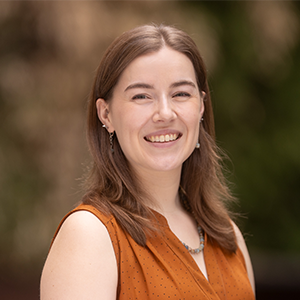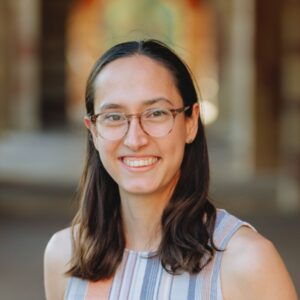About the T32 Research Fellowship
The T32 Research Fellowship is a program offered through an institutional training grant (National Research Service Award T32 GM086270) to develop clinician-scientists at the postdoctoral level of training in the UW Department of Anesthesiology & Pain Medicine. This program offers remarkable opportunities for fellows to develop a research career within a diverse range of interests. Our program graduates are trained clinician–scientists on track to become future leaders in innovative research in academic anesthesiology.
The specific aims of the T32 research fellowship are to:
- Recruit outstanding postdoctoral trainees from a national applicant pool.
- Provide trainees with interdisciplinary theories and methods pertinent to their research area spanning biomedical, clinical, translational, population, and health services research.
- Create a supportive environment through strong mentorship, a breadth of research opportunities, and collaboration across departments.
- Create a practical research experience that allows each trainee to answer a distinct research question involving anesthesiology and perioperative medicine under the tutelage of a committed, experienced research mentor.
- Enhance scholarly presentation and publication of scientific work
- Build knowledge of different research methodologies
- Provide practical skills to foster success in grant writing.
Our program allows trainees to receive a minimum of two years of intensive research training with an opportunity to extend their training to a third year. The experience in the laboratory is intended to provide practical research instruction in fellows’ specific area of interest within anesthesiology and perioperative medicine.
Education
Core research areas
T32 training requires a commitment on the part of the applicant to actively engage in a minimum of two years of rigorous training in one of the six core research areas listed below, under the tutelage of an NIH funded mentor.
- Cardiovascular-Pulmonary Biology
- Clinical Outcomes Research & Epidemiology
- Genome Sciences & Bioinformatics
- Neurosciences
- Pain
- Pharmacology
Didactic
Once a month, our fellows participate in T32 program didactics, which are open to current trainees, T32 alumni, other departmental postdoctoral fellows, and research faculty and staff. The schedule rotates between four seminars:
- Writer’s Workshop
- Grant Writing Seminar
- Journal Club/Guest Lectures
- Work-in-Progress Seminar
For more information, see the 2025-2026 Didactic Schedule.
Training opportunities
Our program offers three positions for the T32 fellow training grant. Each year there are typically one or two positions open. The T32 fellowship guarantees 80% protected time to the trainee to pursue research. The stipend for salary is commensurate with previous training using the NIH salary scale. Clinician trainees maintain a one-day-per-week commitment to clinical work (maximum 20% overall effort) as an attending.
Program Director: Tonya Palermo, PhD
Associate Program Director: Nita Khandelwal, MD, MS
Program Administrator: Leanne Cornel
Eligibility
All trainees, in accordance with NIH regulations, must be citizens of the U.S. or a permanent resident of the U.S., i.e., holding an Alien Registration Receipt Card. Our T32 program is open to all eligible persons regardless of race, sex, or other identity.
Applicants must have received an MD or comparable degree from an accredited domestic or foreign institution.
Application Deadline for next cycle: February 28, 2026
Applicants must complete: (1) an application; (2) a short description of research interests and career goals that outlines a proposed course of future research; (3) a CV; and (4) three letters of recommendation (one of these should be from the proposed faculty mentor).
Learn about our research
 Minke Nota, PhD
Minke Nota, PhD
Dr. Minke Nota is a second-year postdoctoral researcher in her first year of the T32 postdoctoral fellowship at the UW Department of Anesthesiology and Pain Medicine, mentored by Dr. Mitra Heshmati. She completed her bachelor’s degree in Biomedical Sciences and her master’s degree in Neuroscience & Cognition, both at the Utrecht University in the Netherlands. She then conducted her PhD research on the effects of lifestyle on hippocampal neurogenesis at University College Cork in Ireland. Minke’s current research is focused on the characterization of whole brain neural ensembles activated by anesthetic agents, with a particular interest in the role of the ventral hippocampus in post-anesthetic cognitive impairment as well as the role of the parabrachial nucleus in anesthetic action.
 Ryan Parsons, PhD
Ryan Parsons, PhD
Dr. Ryan Parsons is in his first year of a T32 postdoctoral scholar-fellowship in the UW Department of Anesthesiology and Pain Medicine/Seattle Children’s Research Institute under the mentorship of Dr. Tonya Palermo. He completed his undergraduate degrees (BMus, BA Psych Hons) in South Africa at Nelson Mandela University and the University of South Africa. He subsequently completed his MSc degree in Cognitive and Clinical Neuroscience at Goldsmiths, University of London and his PhD at the University of Bath in the United Kingdom. Previous work has focused on exploring flourishing in adolescents living with chronic pain, investigating potential positive aspects as a result of, or despite, living with chronic pain. Dr. Parsons most recently completed a two-year postdoctoral researcher position at the University of Oxford (2023-2025) where he primarily worked on the Oxford BrainWaves study – a program of research to improve school-based mental health and well-being in adolescent populations. His current work focuses on applying a positive psychology approach to pediatric pain to promote resilience and wellbeing in adolescents. Current projects involve investigating the influence of various resilience resources and mechanisms on adolescent pain outcomes, including postsurgically and longitudinally.
Fran Querdasi, PhD
Dr. Fran Querdasi is in the first year of her T32 postdoctoral fellowship in the UW Department of Anesthesiology and Pain Medicine / Seattle Children’s Research Institute, under the mentorship of Dr. Tonya Palermo. She completed a bachelor’s degree in psychology at Pomona College, and a PhD in developmental and health psychology at the University of California, Los Angeles. Fran’s current research focuses on understanding how adolescents’ and young adults’ complex social environments interact with psychological and biological factors to shape pain outcomes. Fran also studies how risk for chronic pain is transmitted from parents to offspring, with the ultimate goal of empowering parents with chronic pain to break the cycle of pain transmission across generations. Overall, Fran aims to inform accessible, targeted interventions to optimize the treatment and prevention of chronic pain in youth.

